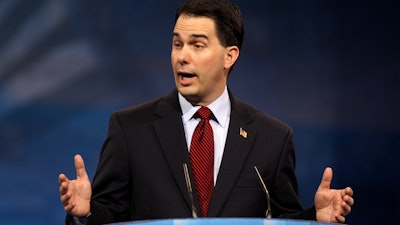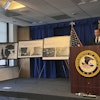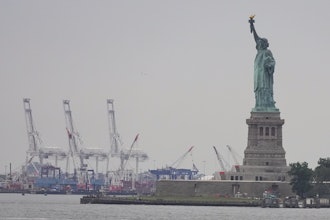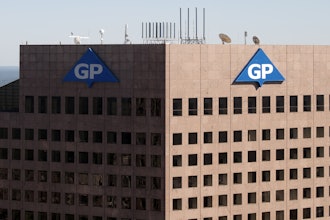
MADISON, Wis. (AP) — A Wisconsin manufacturing tax credit touted by Gov. Scott Walker, Republicans and the state chamber of commerce is costing far more than originally expected, prompting Democrats on Tuesday to call for it to be scaled back.
The debate over the cost of the Manufacturing and Agriculture Tax Credit comes as Walker is about to release a two-year state budget that he promises will include more money for K-12 schools, a University of Wisconsin tuition cut, a sales tax holiday and possibly reductions in other taxes.
Democrats argue that spending so much on the manufacturing income tax credit — which was projected to cost more than $1.4 billion by mid-2019 — puts unneeded pressure on other cash-strapped parts of the budget, such as education and roads. Last week a coalition of liberal groups called for elimination of the tax break so more could be spent on education, health care and jobs programs.
But advocates for the tax credit say looking only at the loss in revenue caused by the corporate and income tax breaks ignores benefits such as job creation from those who have used the law.
"What they don't ever talk about is the fact that production results in a lot of investment, a lot of jobs, higher wages and so forth that benefit our economy and tax collections," said Scott Manley, a lobbyist for Wisconsin Manufacturers and Commerce, a vocal proponent of the tax credit program.
Also Tuesday, Walker's Department of Workforce Development touted new federal numbers showing that Wisconsin led the Midwest and ranked 14th among all states in manufacturing jobs created between December 2015 and last month.
The tax cut program in question extends both corporate and individual income tax cuts to those who qualify. When first passed in 2011, the nonpartisan Legislative Fiscal Bureau projected that it would eventually cost $128 million annually once fully implemented this year. But the bureau's latest estimate, prepared for Democratic Rep. Gordon Hintz and released Tuesday, showed it will cost $299 million, a 134 percent increase.
"This tax giveaway for the rich continues to grow at an unsustainable rate, making it harder to fund priorities that benefit all Wisconsinites in the future," Hintz said Tuesday.
Over the next two years — the period of the next state budget — the program is projected to cost the state $654 million in lost tax collections.
The fact that the tax credit is growing is "really good news" and evidence that it's working, Manley said.
"We hope their projections are accurate," he said. "I don't buy the argument that this is becoming so expensive that we can't afford it."
Also, more than 76 percent of the personal income tax break in 2017 is expected to go to individuals earning more than $1 million a year. Eleven people earning more than $30 million a year will claim 10 percent of the income tax credit worth $22.2 million, according to a simulation by the state Revenue Department.
The dollar-for-dollar tax credit is 7.5 percent of reported income. That nearly wipes out all individual income tax liability, where the highest rate is 7.65 percent. It also nearly eliminates all corporate income tax, which is taxed across the board at 7.9 percent.
Walker has been a staunch defender of the law, which he argues spurs economic growth and helps keep Wisconsin competitive with other states. Walker spokesman Tom Evenson said given positive economic indicators, including the lowest unemployment rate since 2001, "now is not the time to turn back the clock to the Democrats' tax-and-spend policies that failed working families in years past."
GOP Senate Majority Leader Scott Fitzgerald concurred, saying Senate Republicans have "no interest in raising taxes on Wisconsin's manufacturers and farmers."






















